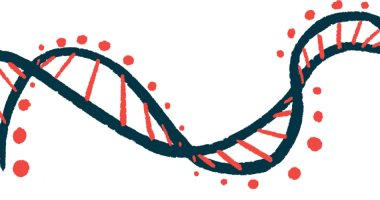Application filed in Australia to launch first trial of ARO-SOD1
Therapy designed to reduce SOD1 protein levels in ALS patients with SOD1 gene mutations

Arrowhead Pharmaceuticals has filed an application in Australia seeking the green light to launch the first clinical trial of ARO-SOD1, its RNA-based therapy for amyotrophic lateral sclerosis (ALS).
The therapy is designed to reduce SOD1 protein levels in ALS patients carrying SOD1 mutations, which are estimated to account for about 2% of familial ALS cases and up to 20% of sporadic cases.
Pending clearance from the Australian Department of Health and Aged Care, Therapeutic Goods Administration, ARO-SOD1 may become the first candidate developed with Arrowhead’s proprietary Targeted RNAi Molecule (TRiM) platform for delivery to the brain and spinal cord to enter clinical studies.
The AROSOD1-1001 Phase 1 trial is designed to assess the safety, tolerability, and pharmacological properties of ARO-SOD1 in people with ALS-SOD1. It is expected to enroll 24 adult patients who will receive ascending doses of the medication or a placebo.
“The ARO-SOD1 program entering clinical studies represents the further expansion of our proprietary TRiM platform, which now includes product candidates addressing a multitude of diverse disease areas that target the liver, lung, muscle, and CNS [central nervous system],” Chris Anzalone, PhD, president and CEO of Arrowhead, said in a company press release.
ARO-SOD1 is designed to target SOD1 messenger RNA
Mutations in the SOD1 gene lead to the production of an abnormal SOD1 protein prone to aggregate and form clumps in nerve cells, which causes nerve cell death and contributes to ALS progression.
ARO-SOD1 is an RNA interference (RNAi) therapy designed to target the SOD1 messenger RNA (mRNA), an intermediate molecule that’s produced when the gene is read and serves as a template for protein production.
RNAi is a natural process of gene silencing in which small RNA molecules, called interfering RNAs, bind to a specific mRNA and target it for destruction, ultimately preventing protein production. Thus, by binding to SOD1 mRNA molecules, ARO-SOD1 can significantly lower the production of toxic SOD1 proteins.
The therapy is injected into the spinal canal — called an intrathecal administration — allowing the therapy to reach the CNS where it is expected to prevent the buildup of the abnormal SOD1 protein, and, consequently, slow disease progression.
Preclinical data showed ARO-SOD1 was highly active against SOD1 mRNA across multiple different models. In a SOD1-ALS rat model, a single injection into the spinal canal was sufficient to reduce SOD1 mRNA by 95% in the spinal cord.
Also, studies with nonhuman primates showed the therapy has sustained effects, with 80% of SOD1 mRNA remaining depleted for three months after a single intrathecal dose.
According to Arrowhead, these findings suggest ARO-SOD1 may require four or less annual injections, much fewer than the monthly intrathecal injections required for Qalsody (tofersen), an RNA-based therapy that recently gained conditional approval in the U.S. for the treatment of ALS patients with SOD1 mutations.







